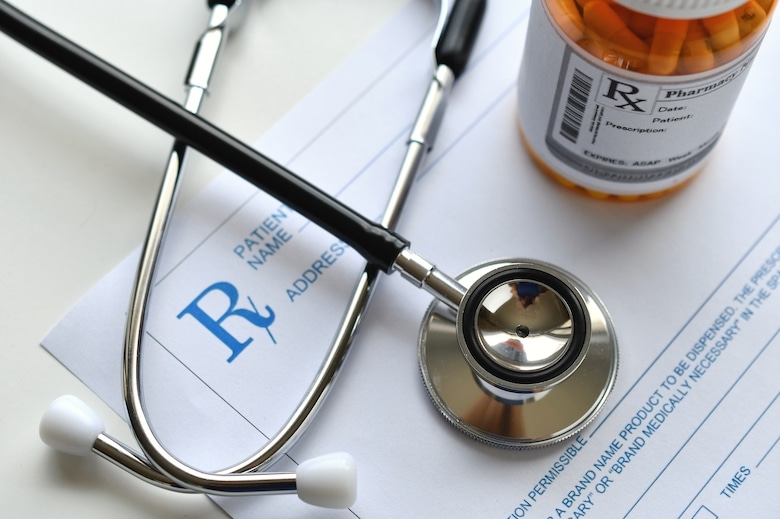Treating Insomnia in Early Recovery

How to Treat Insomnia in Early Addiction Recovery
by Integrating Cognitive-Behavioral & Pharmacological Techniques
Many of us have suffered from insomnia at one point or another. Insomnia is the inability to achieve a good night’s sleep because of difficulty falling asleep, staying asleep, or waking up before sleep time is over. It’s a pretty major problem in the United States where it’s estimated that 30% of the population has trouble falling asleep. Moreover, it’s estimated that between 10% and 50% of the world population can’t get to sleep or stay asleep.
For those recovering from substance abuse addiction, insomnia is a main source of frustration. People often come into treatment and report insomnia as a big problem in their life. Clinical research has proven that there is a link between certain psychological disorders, substance abuse and insomnia. In this article we’ll provide an overview of the different ways insomnia can be treated, including with cognitive-behavioral techniques and medications in a chemical dependency setting.

Insomnia in Early Recovery
Now, let’s get back to the big problem insomnia can cause for those recovering from substance abuse, as it is a very common complaint in residential treatment programs. While there is no pill that will solve insomnia outright, there are many things that can be done to soothe insomnia. There’s medication, natural remedies, and, of course, cognitive-behavioral therapy. Let’s start off by discussing some of the medical treatments for insomnia.
What Medications can Treat Insomnia?
Insomnia can be treated with certain medications, but it’s important to understand that this solution isn’t perfect as it can lead to other issues like daytime drowsiness, or weight gain. A great example of this is Trazodone. If Trazodone is taken correctly it can help – if it is not taken correctly, it won’t work. Trazodone needs to be taken within an hour of falling asleep, if an individual is still awake an hour and a half after taking Trazodone, they’ll likely have even worse insomnia because this medication has a paradoxical effect.
Another psychotropic medication that can treat insomnia is Doxepin, which is known for being a tricyclic antidepressant. When used for depression, individuals are usually prescribed 100 mg or more. In low doses, Doxepin can be used to treat sleeplessness – without the “hangover” effect the next day. Hydroxyzine is a very powerful medication for treating insomnia, as well, as it has sedative properties.
Remeron can also be used to treat insomnia. It is another antidepressant. This medication causes individuals to have a “hangover” effect the morning after. The individual will feel drowsy and tired during the daytime. It may also cause weight gain with long term use.
The most popular insomnia treatment medication is Seroquel. It’s also the most requested by patients. This medication works by blocking the H1 receptors in the brain. Like the other medications on this list, in addition to treating sleeplessness, Seroquel is also used to treat depression.

A Natural Medication for Insomnia
Perhaps the best medication for insomnia is melatonin. It’s a natural sleep aid and it can be purchased over-the-counter. Melatonin is in our bodies naturally. It’s a hormone produced in the pineal gland at night, producing a drowsy feeling that helps us get to sleep. During the day, the body does not excrete melatonin. Taking melatonin as an insomnia treatment is a great option for those in recovery. It is natural and non habit forming. Individuals in recovery often want to go as “natural” as possible when it comes to their medications. Melatonin is a great natural way to assist sleeplessness.
How can Cognitive-Behavior Therapy help with Insomnia?
Cognitive Behavioral Therapy for Insomnia (CBTI) incorporates good sleep techniques to teach individuals how to naturally treat their insomnia. Practicing CBTI often leads to individuals no longer requiring medication.
Firstly, a CBTI program begins by suggesting behavioral changes. Avoid caffeine, nicotine and sugar. These are stimulants and they can exacerbate any sleep issues the individual may naturally have. Nicotine cravings have been proven to wake people up during sleep. CBTI often incorporates smoking cessation techniques in order to give individuals the full picture of how to deal.
Next, individuals are taught how to relax before bed. They’re given an arsenal of positive practices like taking a warm bath or listening to soft, relaxing music. At the same time, individuals are discouraged from watching TV before bed or listening to loud rock music.
Individuals are taught to deal with anxiety before bedtime. For so many people, anxiety creeps up as the mind is trying to get ready for sleep. It becomes cyclical too. People start to think about how if they don’t go to sleep, they’ll have a rough day tomorrow. And thus, the cycle of insomnia begins. With cognitive therapy, individuals are taught to identify negative thoughts and replace them with rational ones. Individuals are taught to stay in bed, relax, and switch any negative, anxious thoughts to positive ones. Here are a few examples of how Cognitive therapy can flip the script on bad thoughts:
- I’m new to recovery, so I’m having a hard time sleeping now, but this isn’t how it will be forever.
- I’ve wanted to sit and be still for awhile, so this isn’t that bad. Even though I’m not sleeping, I can still relax.
- Eight hours of sleep would be nice, but it isn’t required. As long as I shut my eyes and relax, I’ll be ok for tomorrow.
- I want to be asleep, but I can use this time effectively to practice some of the relaxation techniques I learned in therapy.

In conclusion
Insomnia is something many people in the US and across the world deal with, but it can be an especially frustrating circumstance for those in early recovery. While in a treatment center, individuals can learn to deal with insomnia by taking medication and by incorporating Cognitive Behavioral Therapy. A combination of CBTI and medication is the best route. Natural medication for insomnia is melatonin.



